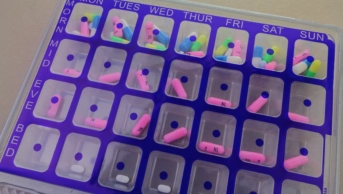
Shutterstock.com
Results from a randomised controlled trial published in 2009[1]
showed that offering financial incentives to patients with psychotic disorders improved adherence to long-acting injectable antipsychotics over a year, but it is unknown whether adherence continues after incentives are withdrawn.
To explore, researchers followed up patients from the original study at 6 months and 24 months after the intervention ended. The original study involved 141 patients and those randomised to the intervention received £15 per injection.
The team found there was no significant difference in adherence rates between the intervention and control groups at either time point (71% vs 77% at 6 months; 68% vs 74% at 24 months).
Reporting in BMJ Open
[2]
(online, 21 September 2016), the researchers say the results are in line with previous literature showing that incentives only improve health-related behaviours for the duration they are provided.
References
[1] Priebe S, Burton A, Ashby D et al. Financial incentives to improve adherence to anti-psychotic maintenance medication in non-adherent patients—a cluster randomised controlled trial (FIAT). BMC Psych 2009;9:61. doi: 10.1186/1471-244X-9-61
[2] Priebe S, Bremner SA & Pavlickova H. Discontinuing financial incentives for adherence to antipsychotic depot medication: long-term outcomes of a cluster randomised controlled trial. BMJ Open 2016;6:e011673. doi: 10.1136/bmjopen-2016-011673


